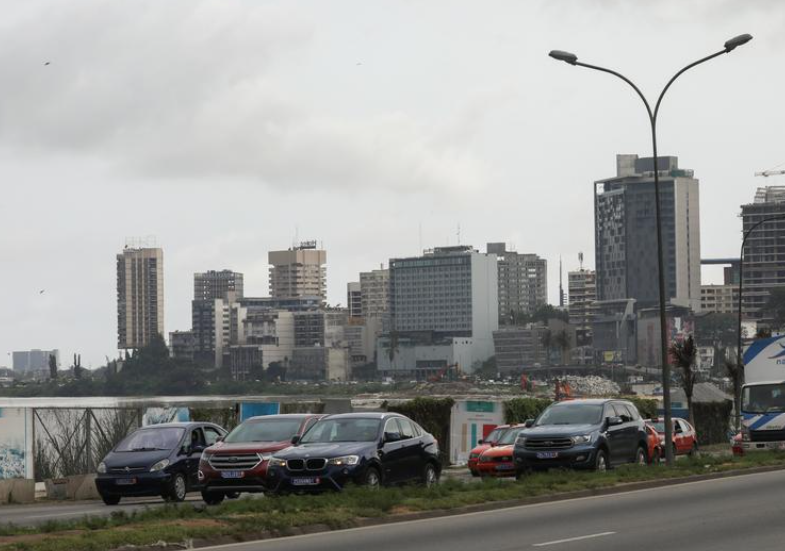Dialogue urged to resolve post-election crisis in Cote d'Ivoire


The international community has called on political leaders, civil societies and citizens in Cote d'Ivoire to resolve the current post-election tension and unrest peacefully and through dialogue.
The crisis follows the re-election of incumbent President Alassane Quattara for a third term in an election that was boycotted by the opposition.
Quattara garnered 94 percent of the vote, whose turnout was 54 percent, according to the provisional results announced by the Electoral Commission on Tuesday.
Henri Bédié of the Democratic Party of Côte d'Ivoire and Pascal N'Guessan of the Ivorian People's Front, the main opposition leaders, had called on their supporters to boycott the Saturday elections in protest of the Quattara's decision to run for a third term and the Constitutional Council's validation of his candidacy.
Bédié, the former president, garnered 2 percent of the vote while N'Guessan, former prime minister, got 1 percent. They maintained that they won't recognize Quattara's victory.
In his defense previously, Quattara, 78, said his first term in office should not be counted as the constitutional changes that limit president to two terms were effected during his second term.
The decision resulted in clashes between his supporters and the opposition ahead of the Saturday elections, leading to fatalities and injuries.
Following the boycott of Saturday elections, on Monday in the evening, Bédié and N'Guessan announced in a statement that they had set up a "transitional council" with Bédié as the president.
The government condemned the move accusing the leaders of sedition for creating a parallel administration.
In a joint statement on Tuesday, the Economic Community of West African States, the African Union and the United Nations, called on the opposition to reverse their decision of setting up a parallel administration and pursue dialogue in resolving any dispute.
They also called on all Ivorian parties to refrain from declarations likely to exacerbate an already tense political situation and urged them to exercise more restraint in order to preserve human lives.
The organizations reaffirmed their readiness to support Côte d'Ivoire by creating the conditions for political dialogue in order to find a peaceful resolution to the current crisis
On Tuesday, the United Nations High Commissioner for Refugees, said electoral tension and unrest in Côte d'Ivoire had caused several thousands of refugees to flee into neighboring countries.
The agency said more than 3,200 Ivorian refugees had arrived in Liberia, Ghana and Togo with most of them being women and children.
The UN High Commissioner for Refugees called on Ivorian political and opinion leaders to refrain from inciting violence, resorting to hate speech, and to resolve any disputes peacefully and through dialogue.
The European Union also urged stakeholders in Cote d'Ivoire to calm the tension and resume dialogue and promote reconciliation through concrete measures that will turn the page of violence and division.
"The EU expresses its deep concern at the tensions, provocations and incitement to hatred that prevailed and continue to persist in the country around this election. The violence which has caused the death of several people and injured many must be independently investigated so that justice can be served as soon as possible," Josep Borrell Fontelles, the European Union high representative for foreign affairs and security policy, said in a statement on Tuesday.
In a statement released on Monday, the Electoral Institute for Sustainable Democracy in Africa and the Carter Center who monitored the Saturday elections, expressed concerns that the overall context and process did not allow for a genuinely competitive election.
"The process excluded a number of Ivorian political forces and was hampered by an active boycott by a segment of the population and a volatile security environment," the statement read.
"Several candidates ultimately did not contest the election and broad sectors of the Ivorian population did not participate; these issues now threaten the acceptance of the results and the country's cohesion."
The two organizations called on Quattara and opposition leaders to address their political and electoral differences through an inclusive dialogue.
They also urged all Ivorians to maintain their commitment to peace throughout the remaining part of the electoral process and to use legal channels, as provided by the laws, to deal with election-related appeals and disputes.
In 2010, the country experienced post-election violence that claimed at least 3,000 lives, forced more than 300,000 to flee across the region and internally displaced more than 1 million people, after the then President Laurent Gbagbo refused to concede defeat in election to Quattara.

































